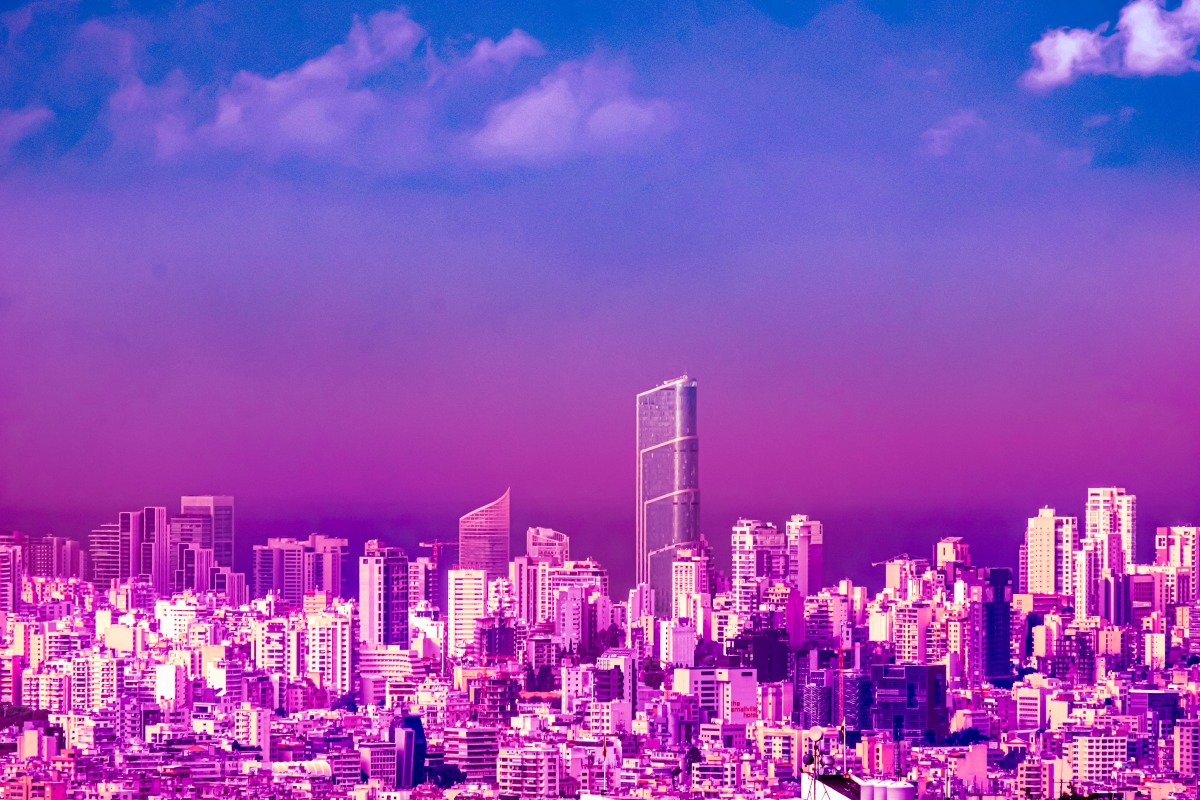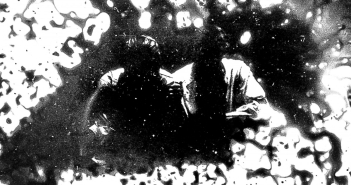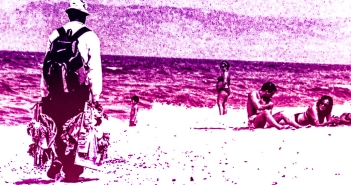What is a ‘real country’?
For the Irish, living as we do on a divided island, the question doesn’t have to be facetious. As a negative example, to try to land on a positive answer, Northern Ireland comes to mind. Wherever that congenitally deformed statelet ends up, its passage through the twentieth century will form a storyline we will never stop arguing about. God bless us.
Lebanon, where I lived briefly from January 2011, is a mystifying and compelling organism.
Were it on the seafloor, it would be brightly coloured, shape-shifting and perhaps equipped with a defensive poison. A territory carved out of the Ottoman Empire via the secret Sykes-Picot Agreement of 1916 and the Paris Peace Conference of 1919, it formed with Syria the ‘French mandate’. It has held together against expectations, and enjoyed tangible golden ages through the same century-long lifespan as our post-colonial Ireland.

At the Beittedine Palace, 2011.
The local cultures, which still roughly map onto the religious arrangements of the confessional political system, have incredibly deep roots. I say ‘cultures’ and ‘roughly’ because this is a land where people will seriously make the case that they are the direct descendants of the Phoenicians, if not the Canaanites. Some of the ingredients here are antiquated enough to make monotheism look like a recent fad.
Other claims include references to identifiable cities and mythologized landscapes in ancient history that remain traceable today: the cedar tree that appears on the flag is of the stock used to build the Jewish Temple, and the forests are referred to in the Epic of Gilgamesh.
In cities like Batroun, Saida and Sur, the phantoms and visible stubs of Phoenician harbours can still be observed. Compressed between the plains and deserts leading to Mesopotamia, and the coastal route to the Nile and Egypt, it has produced merchants and travellers over the millennia. The Lebanese diaspora may number seventy million.
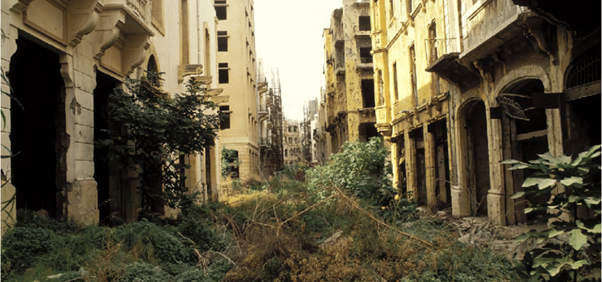
Beirut’s Green Line after the Civil War.
To live in Beirut at the time I did, was, I now realize, a taste of a brief golden age all on its own. One of the clichés that had to be learned was the fable of the glorious 1950s and 1960s: the period after the Second World War and before the domestic civil war, when the traditional merchant classes were joined by elite émigres from other parts of the defunct empire to create prosperity. They became ‘bankers to the Middle East,’ a role now occupied by Dubai.
Wealthy post-Ottoman families that retreated there included the Sursocks, who would form a link to Ireland, and Jewish families from Iraq and beyond. Nadim Shehadi, the guest speaker on our latest podcast, is a product of the cosmopolitan confidence of that time.
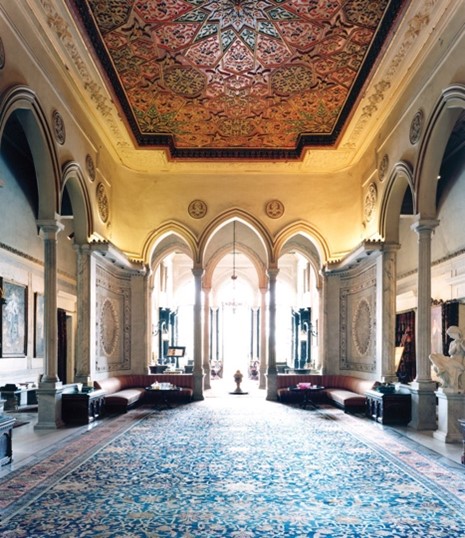
Sursock Palace before the explosion of 2020.
In 2011, the Arab Spring was triggered by events in Tunisia the week I arrived. Through connections, I had the opportunity to meet the renowned journalist Robert Fisk for coffee, and as we sat in a place on Sadat Street, the TV in the corner was flashing images of Mohamed Bouazizi burning. I had been reading about the story, and Fisk hadn’t, so for a few minutes I was the one explaining events to him.
My journalistic Larp brought me up and down the country. No-one ever called me out on it. I wrote one story for the Daily Star, the Saad Hariri-sponsored newspaper, about a scheme to write essays and theses for brattish students at the American University of Beirut. My real job was writing multiple choice questions for a rich private school and educational company.
I had a blast. Young and hopeful journalists were everywhere, and the dismal course of that profession, with Facebook annihilating the business side and ISIS looming into view with plans to cast them in their snuff movies, was not yet obvious.
One young English writer I knew noted that “the next few years are looking pretty good for work.” She might have been right, but that sort of attitude, shared by the foot soldiers of the international NGOs, was already watering seeds of uncommon bitterness among the Lebanese. Their rivers of trouble were sources of fresh water for well-paid and often decadent hordes of expats. One wonders how high the shoots might have grown by now.
At the moment of the horrific Port explosion of 2020, I was living in Paris. A Lebanese woman I knew there, a filmmaker[1] and activist, called me briefly, with her voice inflamed from sobbing. “Really Luke, what have we done to deserve all this?”
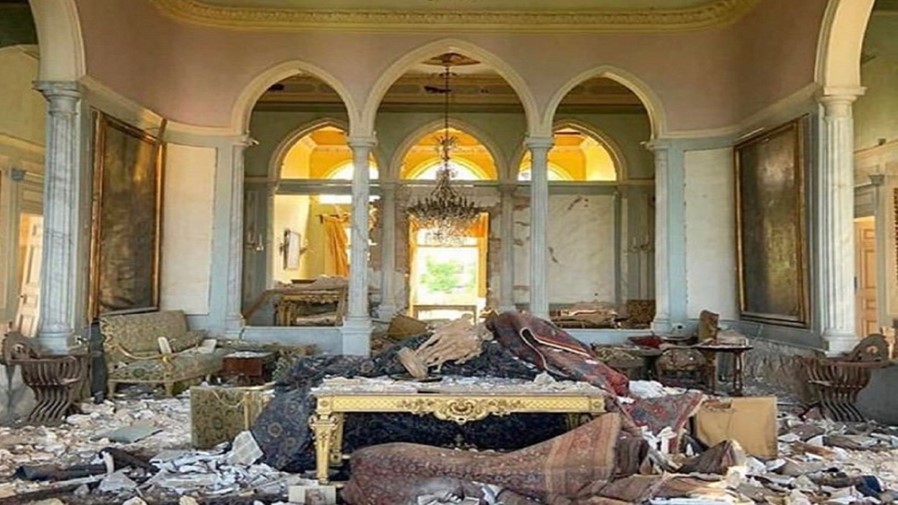
Sursock Palace after the explosion of 2020.
Add to this the financial collapse which wiped out savings and plummeted the domestic currency, the Syrian refugee influx which increased the population by at least 30%, the pandemic pains and now a very possible Hezbollah-Israel war, and you might have a country that even her most ardent lovers will leave. Who will stay, and who will join the seventy million-strong diaspora? What cause for hope might persist?
One of the characters I met during my time there was Nadim, during a dinner at the palace of the Sursocks in Gemmayzeh. With characteristic Lebanese curiosity and openness, he simply stayed in touch with me, a random person who had breezed through then strayed very far from Beirut, like most of our overconfident cohort running around at the time.
One also wonders, incidentally, whatever happened to all those little girls and boys?
Feature Image of Beirut: Jo Kassis
[1] Of course she was, and is. Her first films were beautiful, artful, personal things shot through with a heatwave of avant garde, mostly concerned with her much-traumatized locality of the Shia south. Some recent work is here.

